
It’s a common belief that the life expectancy of large dog breeds doesn’t stretch as far as their smaller counterparts.
Some majestic large dogs certainly break this mold and boast impressively long lives.
How does an extended stretch of frolics, paws, and loyalty sound to you?
Understanding the factors that contribute to a living dog enjoying a long life is key.
From genetics to comprehensive care and a nurturing environment.
Join us as we unveil the longest living large dog breeds that could become not just pets, but life-long partners.
Table of Contents
ToggleLongest Living Large Dog Breeds
Labrador Retriever
When considering the best large dog breeds for longevity, the Labrador Retriever frequently tops the list.
Esteemed for being one of the most endearing and long-lived big dog breeds.
Labradors boast an average lifespan of about 10 to 12 years.
Understanding the attributes that contribute to the Labrador’s long life is essential.
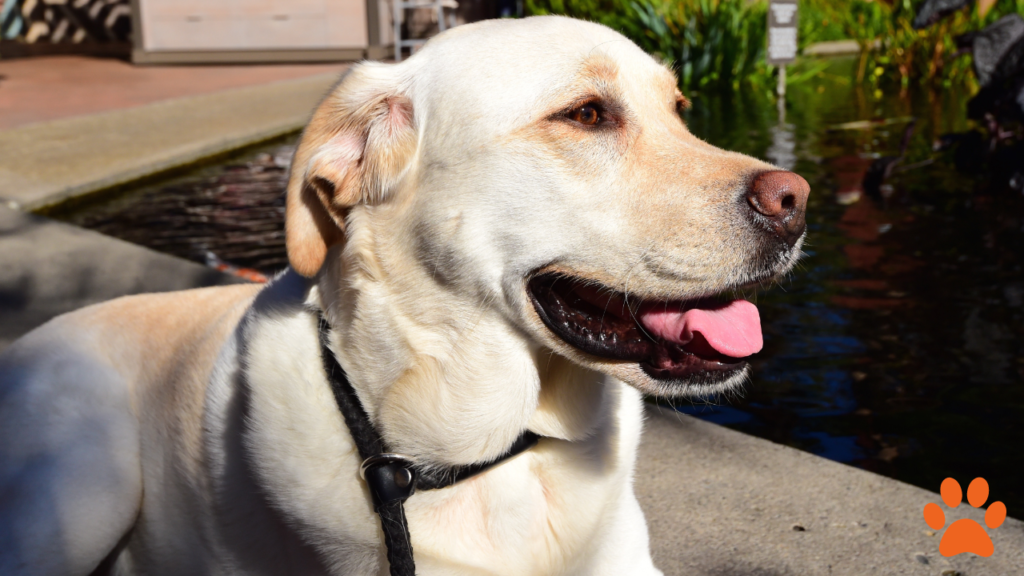
Labradors hold a special place in the hearts of many.
Known for their gentle nature and adaptability.
Their reputation as a member of the living dog breeds that thrive well into their golden years is well-earned.
These dogs are not just pets; they are family members that bring joy and companionship to their households.
Maintaining the health of these long-living big dog breeds requires commitment.
Labradors require regular exercise and weight management.
Obesity can significantly shorten a large dog’s lifespan.
It’s crucial to monitor their diet and exercise routine.
Ensuring your Labrador maintains a lean physique is a key aspect of aiding them in achieving a long and happy life.
- Feed a balanced diet rich in nutrients
- Engage in daily physical activities, like walks and playtime
- Regular health check-ups with a veterinarian
- Keep up with vaccinations and preventative medications
By integrating these practices into your Labrador’s routine, you’re setting the stage for a fulfilling life.
Remember, choosing one of the long-living big dog breeds like the Labrador Retriever not only brings the joy of a large, spirited companion.
It also brings the responsibility to provide the care that supports their longevity.
Treat your Labrador well, and you’ll enjoy the rewards of a devoted friend for years to come.
Standard Poodle: A Regal Companion with a Remarkably Long Lifespan
Admired for their sophisticated appearance and intelligent demeanor.
Standard Poodles stand as one of the large dog breeds with the longest life expectancy.
They typically grace their owners’ lives for 10 to 18 remarkable years.
As a pet enthusiast, you might be captivated by their hypoallergenic coat.
A coat that caters to both allergy sufferers and those who prefer less shedding companions.
Their relatively long lifespan can be attributed to responsible breeding practices.
This has lessened the occurrence of genetic disorders in this breed.
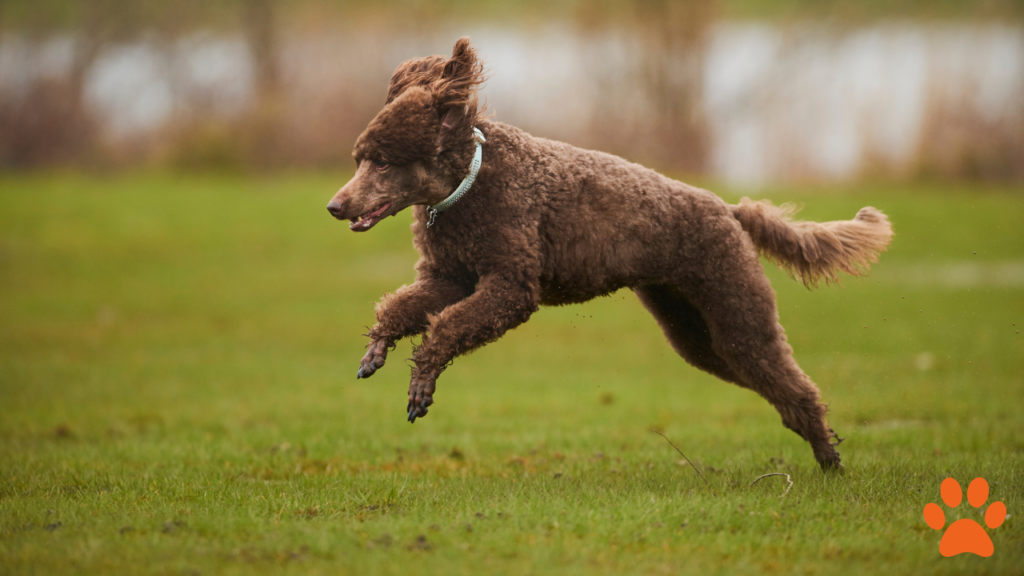
When you welcome a Standard Poodle into your home, you’re not just getting a pet.
You’re gaining a smart, loyal friend whose health and vitality may very well surpass the average.
To play your part in ensuring your Standard Poodle’s longevity, tailored nutrition should be your priority.
Focus on high-quality, breed-specific foods that cater to their unique dietary requirements.
Regular veterinary care is also crucial in managing health issues.
Let’s take a closer look at the average lifespan of Standard Poodles alongside other notable large dog breeds:
| Breed | Average Lifespan | Distinctive Qualities |
|---|---|---|
| Standard Poodle | 10 – 18 Years | Intelligent, Hypoallergenic Coat |
| Labrador Retriever | 10 – 12 Years | Friendly, Family-Oriented |
| Belgian Malinois | 12 – 14 Years | Athletic, Intelligent |
| Alaskan Malamute | 10 – 14 Years | Robust, Family-Oriented |
As you can see, the Standard Poodle is among the longest living dog breeds.
Reflecting a commitment to health and longevity shared by their breeders and owners alike.
When considering a large breed with a prolonged lifespan, the regal Standard Poodle is undeniably a standout choice for a faithful and stylish companion that will enrich your life for many years to come.
Chow Chow: A Long-Living Companion
When exploring the range of large dog breeds that live the longest, you might be surprised to find the Chow Chow among the top.
Though not the largest in stature, their weight often exceeds 70 pounds.
Bolstered by a luxuriant coat that makes them appear even more substantial.
These dignified dogs boast an impressive average lifespan of 12 to 15 years.
Aligning them with some of the most long lasting big dog breeds.
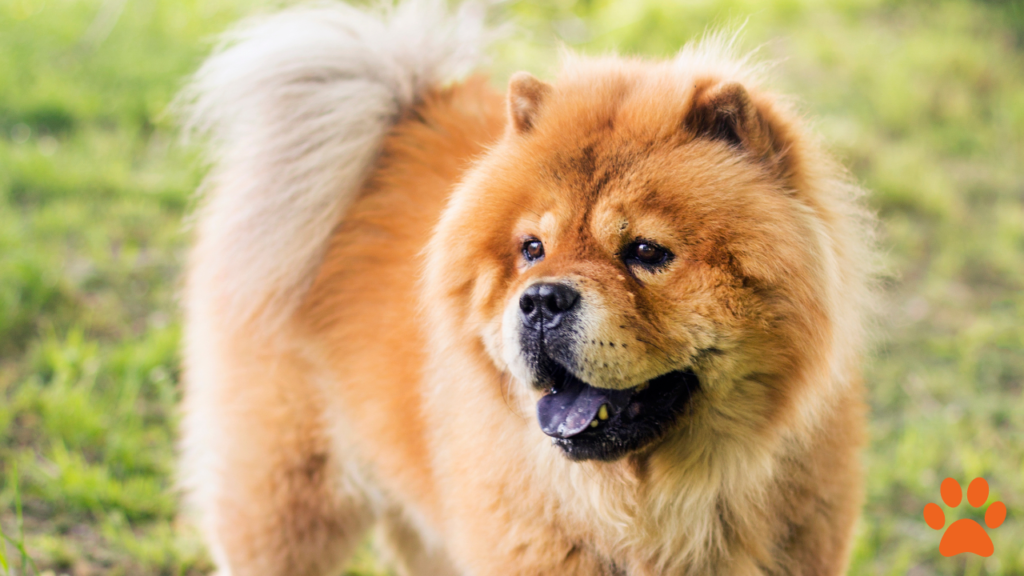
One of the keys to nurturing their overall health and longevity is understanding their unique lifestyle needs.
As a Chow Chow guardian, it’s crucial to kickstart their training early.
Their well-known independent streak and occasional stubbornness should be managed with patience and consistency.
Regular exercise forms an essential part of their routine, keeping them not only physically fit but also mentally stimulated.
Here’s a quick guide to incorporate into your care routine:
- Proper Training: Establish leadership and positive behavior early on.
- Exercise: Engage in daily walks and play sessions.
- Healthcare: Schedule regular check-ups with your vet.
- Nutrition: Provide a balanced diet tailored to their specific breed requirements.
Looking after a Chow Chow does not involve complex health maintenance, but they still thrive on a structured lifestyle.
Your vet’s advice and regular health screenings will ensure that any potential issues are caught early on.
The right balance of care will help you and your Chow Chow enjoy a long and happy life together.
| Aspect of Care | Recommendations for a Chow Chow |
|---|---|
| Weight Management | Maintain a healthy weight to prevent stress on joints and other health issues. |
| Diet | High-quality food with balanced nutrients appropriate for their age and size. |
| Exercise | Daily walks, playtime, and mental stimulation activities. |
| Training | Early socialization and obedience training to manage their independent temperament. |
| Health Check-ups | Regular veterinary visits for preventive care and early detection of issues. |
Embrace the joy of sharing your home with one of these long living big dog breeds.
Their companionship is as enduring as their lifespan, and with the proper care, your Chow Chow will be a cherished family member for many years to come.
Doberman Pinscher
When considering large dog breeds with longest lifespans, the Doberman Pinscher distinguishes itself.
With an average lifespan that rivals many long living giant breed dogs.
Renowned for its keen intelligence and unwavering loyalty.
The Doberman typically enjoys a life expectancy ranging from 10 to 13 years.

To ensure these longest living dogs enjoy every year to the fullest, a dedication to a healthy lifestyle is paramount.
Instilling regular exercise routines and maintaining a balanced diet are integral.
Such a proactive approach to their wellbeing not only enhances their physical fitness but also their mental acuity.
Understandably, prospective Doberman owners are encouraged to seek out reputable breeders.
These breeders are known for their stringent health screenings of hereditary conditions.
This significantly reduces the likelihood of issues such as:
- Dilated cardiomyopathy
- Wobblers Syndrome
- Von Willebrand’s disease
- Hip Dysplasia
It is through these careful practices that you can offer your Doberman the best chance of a healthy life.
- Regular Health Screenings: Essential for early detection and management of genetic conditions.
- Consistent Exercise: Keeps them agile and supports cardiovascular health.
- Balanced Diet: Must be tailored to their specific life stage and activity level.
- Mental Stimulation: Engage their intelligent minds to prevent boredom and associated behaviors.
The graceful Doberman Pinscher serves as a shining example of longevity in large dog breeds.
Melding both grandeur and endurance.
By adhering to these care principles, your Doberman can stand as a testament to the enduring spirit of long living giant breed dogs.
Australian Cattle Dog
When you think of the longest living large dog breeds, the Australian Cattle Dog may not spring to mind.
However, this breed is often more robust than it seems.
Slipping into the category of giant breed dogs in terms of both size and vitality.
These dogs owe their extraordinary longevity, which ranges from 12 to 16 years, to a formidable immune system.
One that has been finely honed through selective breeding practices.
Not only are Australian Cattle Dogs known for their impressive lifespan.
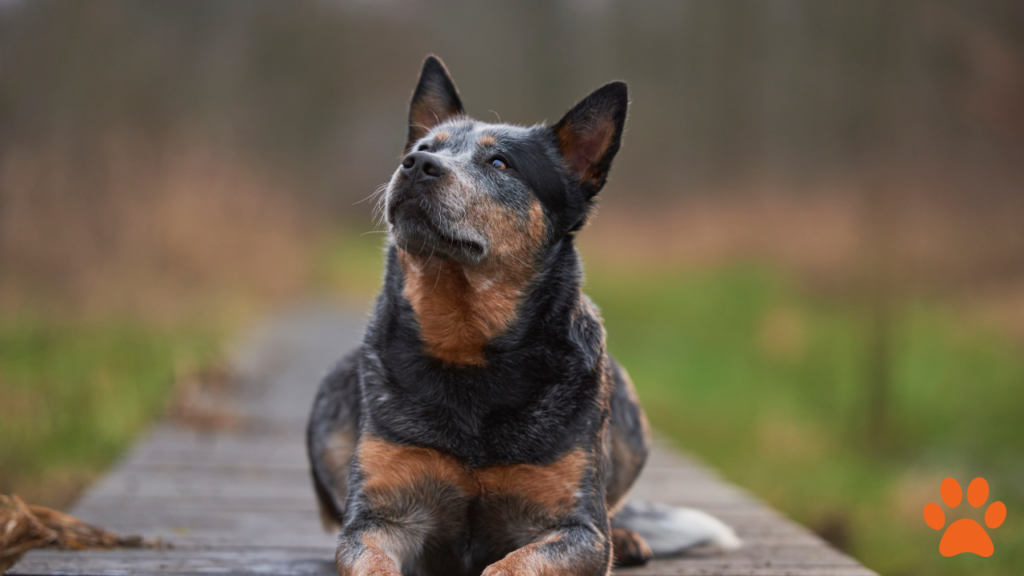
Their inherent intelligence makes them highly responsive to training.
This responsiveness, coupled with the breed’s vivacious spirit, means they have a propensity to quickly pick up on new commands.
Presenting a delightful challenge for dog owners who take pleasure in interactive and stimulating training sessions.
Yet, there are special considerations to keep in mind for maintaining the well-being of these active dogs.
One such aspect is their herding instinct, which can surface in the form of nipping behaviors.
A natural action for an active herder but less desirable in social settings.
Early socialization and proper training techniques are crucial in managing these instincts.
Let’s delve into some special health tips for your Australian Cattle Dog:
- Regular check-ups with a veterinarian to screen for any signs of joint issues, which can afflict active breed dogs.
- A diet rich in nutrients that support joint health and an active lifestyle.
- Engage in activities that cater to their mental and physical needs, such as herding, agility courses, or interactive playtime.
- Early socialization to prevent them from becoming overly wary or reactive around strangers.
Adhering to these guidelines can help ensure that your Australian Cattle Dog not only enjoys a lengthy existence but thrives with excellent quality of life.
As you foster their physical strength and mental acuity, you also fortify the bond between you and your loyal companion.
Belgian Malinois: Agile and Long-Lived Companions
When you consider a Belgian Malinois, you’re looking at one of the most athletic and versatile dog breeds around.
Typically, a Belgian Malinois will enjoy a healthy lifespan of 12 to 14 years.
This is due to their genetic makeup and the rigorous standards maintained in their breeding.
To keep these athletic dogs in top form, it’s crucial for you to provide them with a range of activities.
Activities that support both their physical and mental well-being.
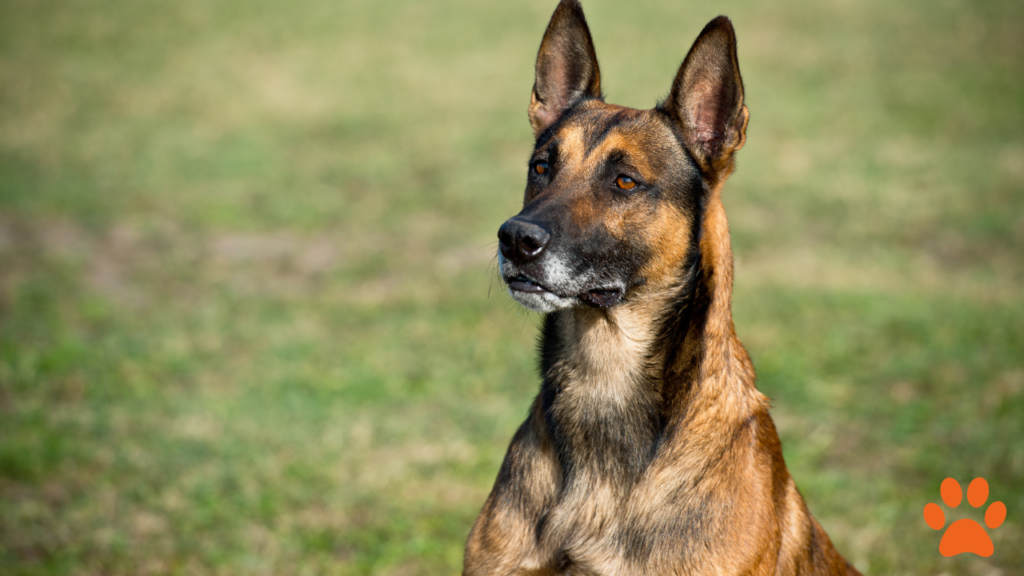
Let’s take a look at how you can focus on preventing health issues to help your Belgian Malinois thrive throughout their long life.
- Maintain a healthy diet tailored to their active lifestyle.
- Engage in daily exercise that challenges their stamina and intellect.
- Keep their minds sharp with obedience training and puzzle games.
- Regular veterinary check-ups to catch and address health concerns early.
| Activity | Benefits |
|---|---|
| Obedience Training | Enhances mental stimulation and reinforces positive behavior. |
| Agility Courses | Builds physical strength and coordination while keeping them engaged. |
| Long Walks or Runs | Supports cardiovascular health and helps manage energy levels. |
| Puzzle Toys | Provides mental challenge essential for preventing boredom and destructive behaviors. |
By incorporating these practices into your routine, you’ll not only uphold the exceptional health of your Belgian Malinois.
You also strengthen the bond between you and your intelligent canine companion.
It’s clear that with the right care, these athletic dogs are poised to live robust and fulfilling lives as part of your family.
Alaskan Malamute
A noble giant amongst the canine breeds.
Lauded not only for its impressive strength but also its longevity.
As you explore the prospect of welcoming a large dog into your home, the Alaskan Malamute stands out.
With a lifespan that often extends from 10 to a remarkable 14 years.
A testament to their endurance, these dogs live full lives.
Thanks to their expansive genetic diversity forged through their historical evolution.

Crucial to an Alaskan Malamute’s long life is a regimen of proper care.
One that accommodates their need for regular, vigorous exercise.
These majestic dogs thrive when their physical and mental faculties are engaged.
This not only ensures their wellbeing.
It also helps to prevent the onset of unwanted behaviors, such as excessive howling or chewing.
Alaskan Malamutes are pack-oriented animals that form deep bonds with their human families.
Their need for companionship means they are best suited for households where they can enjoy a wealth of social interaction.
Staving off the separation anxiety that may arise from being left alone for long periods.
| Characteristic | Benefits | Considerations |
|---|---|---|
| Genetic Diversity | Contributes to robust health | Research breeder history for optimal genetics |
| Exercise Needs | Keeps dogs fit and behaviorally balanced | Requires dedicated time for physical activities |
| Longevity Range | 10 to 14 years | Long-term commitment and care |
| Family Bonding | Thrives in a loving environment | Needs regular companionship and may experience separation anxiety |
Giant Schnauzer: Robustness and Care
When it comes to giant breeds, the Giant Schnauzer stands out not just for its size, but for its spirited personality and robust nature.
As a prospective owner of this larger-than-life canine, you’ll be delighted by its cheerful disposition.
One requiring you to match its level of energetic zeal.
Among the common health considerations, hip dysplasia is a concern that arises with many giant breeds.
Vigilance and regular check-ups are critical to identify and manage this joint condition early.
Additionally, owing to their size and coat, Giant Schnauzers can face certain eye issues.
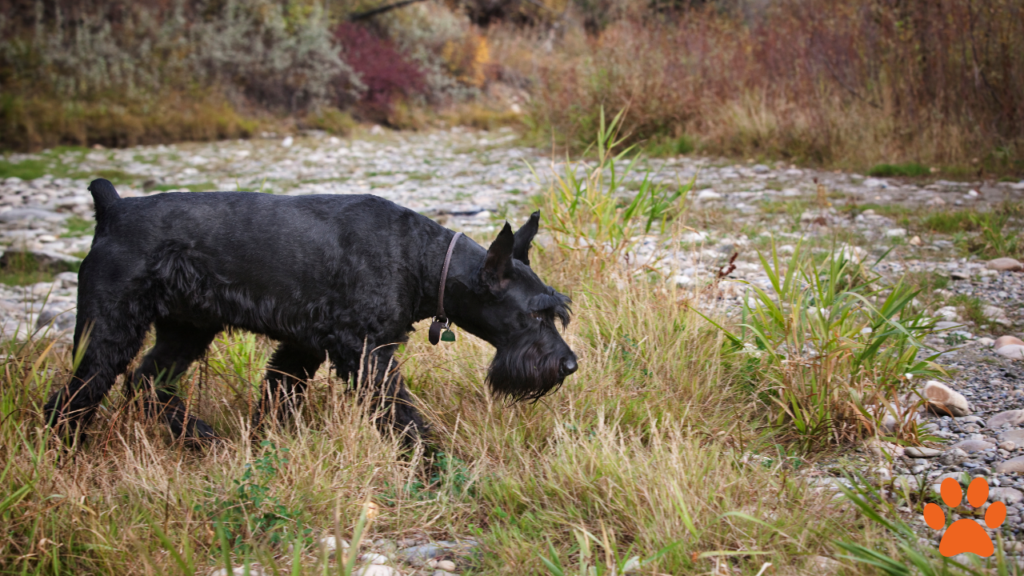
Their striking coat and color not only contribute to their impressive appearance but also require regular grooming.
Their dense and wiry fur needs consistent care to prevent matting and to maintain its sheen.
Brushing several times a week and professional grooming every few months will ensure their coat remains as majestic as their personality.
- Ensure a balanced diet to support joint health and prevent obesity-related strain.
- Engage in regular exercise routines that cater to both physical and mental stimulation.
- Establish a strict health check-up schedule, focusing particularly on hips and eyes.
- Consistent training and early socialization to nurture a well-behaved companion.
These proactive steps will support your Giant Schnauzer in leading a joyful and lengthy life as your faithful companion.
Keep in mind that while they are giants in size, they are equally as grand in their need for love, health care, and an active lifestyle.
Conclusion: Embracing Longevity in Large Breed Dogs
When it comes to selecting the longest living large dog breeds, understanding and embracing the diverse traits that contribute to their lifespans is essential.
Your role as a caregiver to these majestic creatures is paramount in their journey towards a long, vibrant life.
It begins with the fundamentals: a balanced diet tailored to the big dog breeds’ specific needs.
A consistent exercise routine that supports their robust frames.
Regular veterinary visits to preempt and treat any health concerns.
Beyond the basics, the very act of selecting a giant breed dog cannot be taken lightly.
The heart of ensuring a long and prosperous existence for your large breed dogs lies in a blend of genetics, care, and informed pet ownership.
For those who cherish the companionship of these long-living big dog breeds, the investment in their well-being offers exponential returns in the form of loyalty, protection, and unconditional love.
Frequently Asked Questions
Which Large Dog Breed Lives The Longest?
The Standard Poodle is one of the large dog breeds with the longest lifespan, typically living between 10 to 18 years. They are known for their graceful build, intelligence and generally healthy genetics contributing to their longevity.
Can A Large Dog Live 20 Years?
It is extremely rare for a large dog to live 20 years. Typically, larger dog breeds have shorter lifespans compared to smaller breeds, often living between 6 to 12 years. Factors like breed, size, genetics, and health care play significant roles in determining a dog’s lifespan.
Which Large Dog Breed Has The Least health Problems?
The Greyhound is often considered one of the large dog breeds with the least health problems. They are generally known for their robust health and lack of genetic diseases common to other breeds. Their slim build and athletic nature contribute to fewer cases of hip dysplasia and other joint issues that commonly affect large breeds.
Why Do Large Dogs Age Faster?
Large dogs age faster due to their rapid growth and higher metabolic rate, which can lead to earlier onset of age-related diseases and shorter lifespans. This accelerated growth can cause more oxidative stress and faster cellular damage, contributing to faster aging compared to smaller dogs. Genetic factors also play a role in this process.
